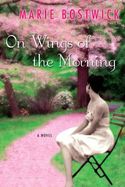Lynsay Sands | Boxing Day
 Right about now you must all be breathing a heavy sigh of relief that Christmas is over and life for the most part--well other than New Years-- will get back to normal. Truly, Christmas is a lovely holiday, giving us the chance to spend time with family and—at least for me—visit with cousins and relatives who I only see two or three times a year (and I have great family so I love that.) But boy! Three days of non-stop visiting and eating and unwrapping gifts is very exhausting, don’t you think? I do. I’m about ready to drop.
Right about now you must all be breathing a heavy sigh of relief that Christmas is over and life for the most part--well other than New Years-- will get back to normal. Truly, Christmas is a lovely holiday, giving us the chance to spend time with family and—at least for me—visit with cousins and relatives who I only see two or three times a year (and I have great family so I love that.) But boy! Three days of non-stop visiting and eating and unwrapping gifts is very exhausting, don’t you think? I do. I’m about ready to drop.And don’t even mention the Boxing day sales. Holy cow!! People get crazy grumpy out there on their hunts for bargains. It’s a very serious business that bargain shopping stuff. Do not get between another man or woman and their sale item. You could be placing your life at risk. And watch yourselves in the parking lots too! We saw an accident happen right in front of us. A fellow backed his pick up out of his parking spot and right into a car that had stopped to let another car get out of the way. I thought the drivers would come to blows. A little blonde gal was in the car that was hit. She got out and ran around, steam practically coming out of her ears and she didn’t particularly care that the fellow in the pick up was a big guy (just a small mountain really). LOL. I hate to admit it but watching her rail and wag her finger under the nose of the huge driver who was in the wrong made me smile and murmur to myself “You go girl! Give it to him.” She’s the kind of gal who would make a good heroine in a book.

After all the excitement and rush of Christmas though, all I want to do is curl up with a good book. I hope you’re all the same because I have one that came out boxing day. THE ACCIDENTAL VAMPIRE. It’s book #7 in the Argeneau series of vamps and one I had a lot of fun with. The heroine, Elvi, isn’t a blonde, but she’d have no trouble railing and wagging a finger at a mountain in the wrong either.
Elvi Black had been married, widowed and lost her only child when, at 57, she went on a vacation to Mexico with her best friend and woke up one morning to find she’d got more than Montezuma’s revenge. She was a vampire. Fortunately, Mabel was more than a fair-weather friend and helped Elvi through it. She got her home to Canada and even rallied together the population of their small town to help Elvi with this life change. For the next five years everything just sort of coasted along nicely, but then Mabel and some of their friends decided they needed to find a mate for Elvi, to keep her company in the long years ahead. A vampire would be preferable, but where to find a vampire boyfriend? The personal ads seemed the best answer. So they put out an ad and arranged for a bunch of the candidates to spend some time in their small town. That way they could give them the once over, and if they were suitable, see how they got along with Elvi. (Really, no one can embarrass you like your friends and loved ones, huh? LOL)
Unfortunately, advertising your status as a vamp is a no-no among immortals and that ad caught the attention of the council. They sent Victor Argeneau down to Elvi’s small town to check her out and drag her back for judgment—which with them can mean death. Victor doesn’t mind the job until he gets there and finds out he can’t read our Elvi. She’s his lifemate. Now he just has to convince her of that, win her hand over the other immortals who responded to the ad, and figure out a way to keep the council from demanding her head. . . Well, if he can keep her alive long enough to worry about that. Elvi’s managed to draw the ire of more than the council and someone’s trying to end her life before Victor can enjoy his happy ever after. Is life ever easy? (grin)
I truly did have fun with this book, and I hope if you get the chance to relax with Elvi and Victor, you enjoy it too. It should bring a smile to your holiday weary faces.
Lynsay
lynsaysands.net
Labels: Boxing Day, Lynsay Sands, paranormal, vampire










